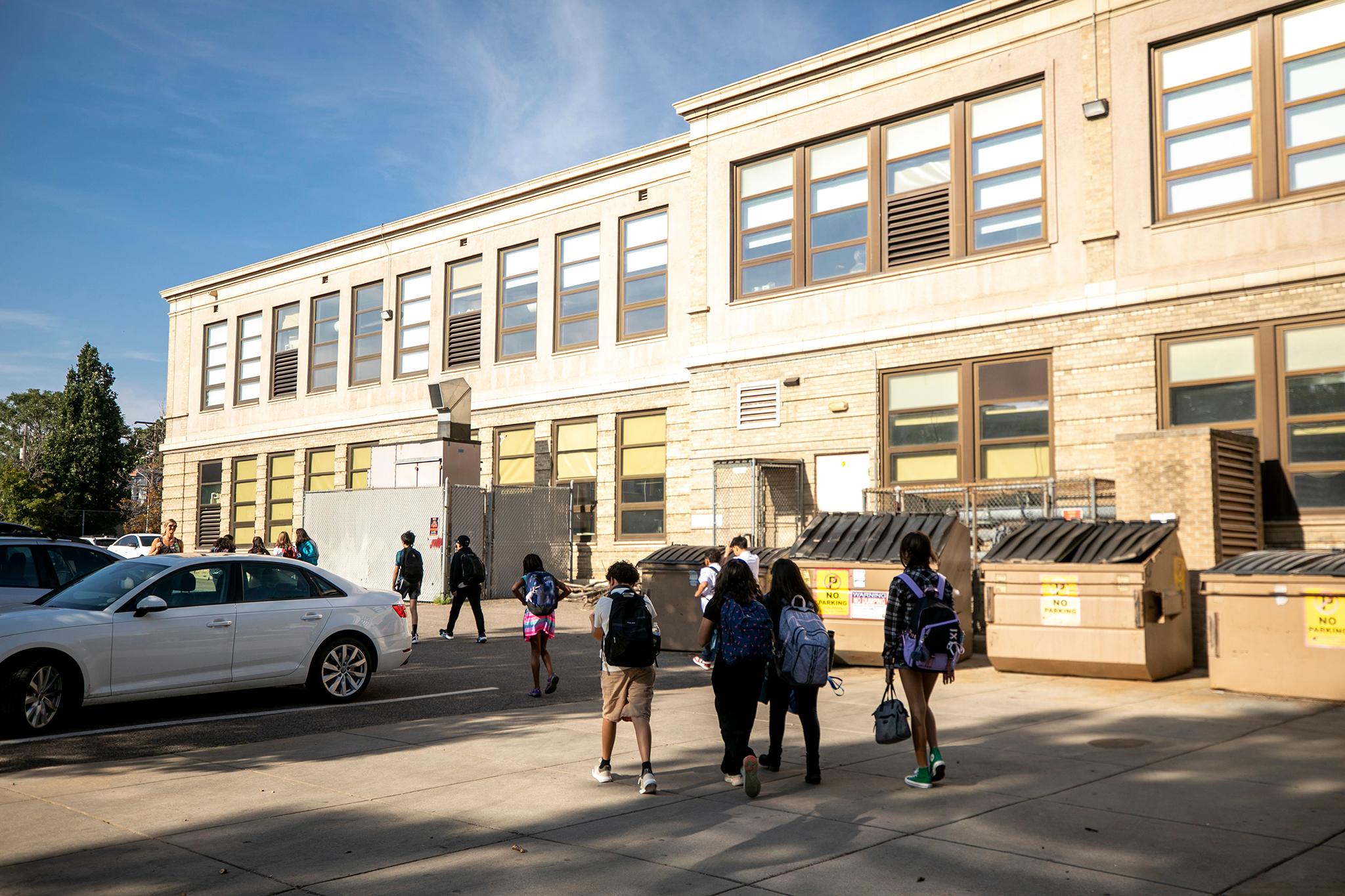This story was originally published by Chalkbeat. Sign up for their newsletters at ckbe.at/newsletters
Yesenia Robles, Chalkbeat
Unequal resources across schools, a lack of Latino teachers and leaders, and a “perpetual undervaluing” of Latino culture are among the barriers facing Hispanic students, families, and staff in Denver Public Schools, a new report found.
Called the La Raza Report and released publicly Tuesday, the report was commissioned by the district to identify barriers and opportunities in the community, and to understand their impact.
The Denver school district, the largest in the state, has more than 45,000 students who identify as Hispanic or Latino — 51.8% of all students. The population had been increasing but started decreasing at the start of the pandemic. The report also highlights that gentrification has shifted the population within the city and contributed to resegregation.
The Denver-area company that wrote the report, the Multicultural Leadership Center, LLC, spent months conducting focus groups, research, surveys, and other analysis.
In one of the more pointed sections, the report authors identified “the brown ceiling” as a barrier the district should better understand.
“Included in the brown ceiling is the finding that employees feel that the district, rather than capitalizing on its human capital to ensure equity and excellence for Latino students, frequently requires that Latinos ‘act white,’ ignore their Latino cultures and suppress the cultural assets they bring to the district,” the report states.
The report also identified cultural resilience and the persistence of various community groups as a strength that has led to positive changes in the district. Some of those changes, like curriculum and programs for culturally and linguistically responsive teaching and more opportunities for students to become bilingual, will help new Spanish speaking migrant students arriving recently, the report said. Previous generations had to fight for such opportunities, it notes.
The report concludes with 35 recommendations for the school district and the city. The recommendations range from systemic, including asking the city to help plan for a continued influx of immigrant families and students, to specifics that call for reviewing transportation options for West and Lincoln high schools.
The recommendations also note the district must find a better way to ensure that resources to schools in the district are being equitably distributed.
Among the recommendations:
- For the district: To coordinate with local foundations, non-profit organizations, and higher education institutions to establish student tutoring programs funded by Denver employers.
- For the district: To work with the city and the Regional Transportation District, or RTD, to develop a transportation system for students and families who need it, “even in those areas where providing such a service may not be cost-effective but is socially just.”
- For students: To develop a strategy for increasing recruitment and participation in the Seal of Biliteracy program, which allows students to learn and demonstrate proficiency in English and another language. The seal is awarded at graduation and is meant to show colleges and employers that the student has demonstrated proficiency in two languages. Given that many DPS students already speak more than one language, the report says this program should be promoted more.
- For parents: To develop a districtwide bilingual parent leadership institute focused on understanding the DPS educational system and the roles parents can play in the children’s education, including working with teachers and administrators. The institute must also include a multicultural component, including parents of color who “can use this venue to work on the issues related to cultural conflicts within groups and among the various cultural groups.”
- For teachers: To expand the pool of Spanish-speaking teachers from various subject matter areas and to increase opportunities for concurrent enrollment, which allows students to simultaneously earn high school and college credit.
- For school leaders: To establish a Latino Leadership Pipeline and a Latino Leadership Mentorship Program. Another recommendation is to consider redrawing the boundaries for West High School and to periodically review all boundaries to account for gentrification and other population shifts.
- For the central office: Cultural sensitivity and cultural competence training for all central office employees. “Staff have reported overt and covert racist remarks,” the report states.
You can read the full report by clicking here.













